Dear WesleyNexus Colleagues:
From the writings attributed to St. Paul:

“Do not be conformed to this world, but be transformed by the renewing of your minds, so that you may discern what is the will of God—what is good and acceptable and perfect”. Romans 12:2
”Let the same mind be in you that was in Christ Jesus, who, though he was in the form of God, did not regard equality with God as something to be exploited, but emptied himself, taking the form of a slave, being born in human likeness. And being found in human form, he humbled himself and became obedient to the point of death— even death on a cross”. Philippians 2:5-11
“The fruit of the Spirit is love, joy, peace, patience, kindness, generosity, faithfulness, gentleness, and self-control. There is no law against such things. And those who belong to Christ Jesus have crucified the flesh with its passions and desires. If we live by the Spirit, let us also be guided by the Spirit”. Galatians 5:22-25
August has been a stressful month for many people in the United States. Pictures of crying children being separated from their parents after ICE raids gathered undocumented workers in Mississippi, mass murders in Texas and Ohio, the scab covering racism being pulled off, revealing the festering sore still unhealed since the forming of our nation — all piling on to the long standing suffering of the poor, the sick, the homeless, the refugee and the lonely. While we at WesleyNexus typically try to present optimism and confidence in the knowledge of grace overcoming sin in a world that is still evolving, this month we will pause to reflect on the darker side of the human condition. While the United States is certainly exceptional in many ways, our propensity for tribalism, bigotry and limited empathy for the other should humble all of us. We invite you to reflect on these articles. At the same time, we include materials such as the on-line book by John Horgan Mind Body Problems that offers a reflection on the most vexing of scientific and philosophic problems. We close on an upbeat note with a sermon by Nancy Poole, a lay leader in Pennsylvania who is developing a local church design to move her church and her community towards the spirit reflectedin the Pauline writings above.
**********************************
UPCOMING EVENTS
Reminder
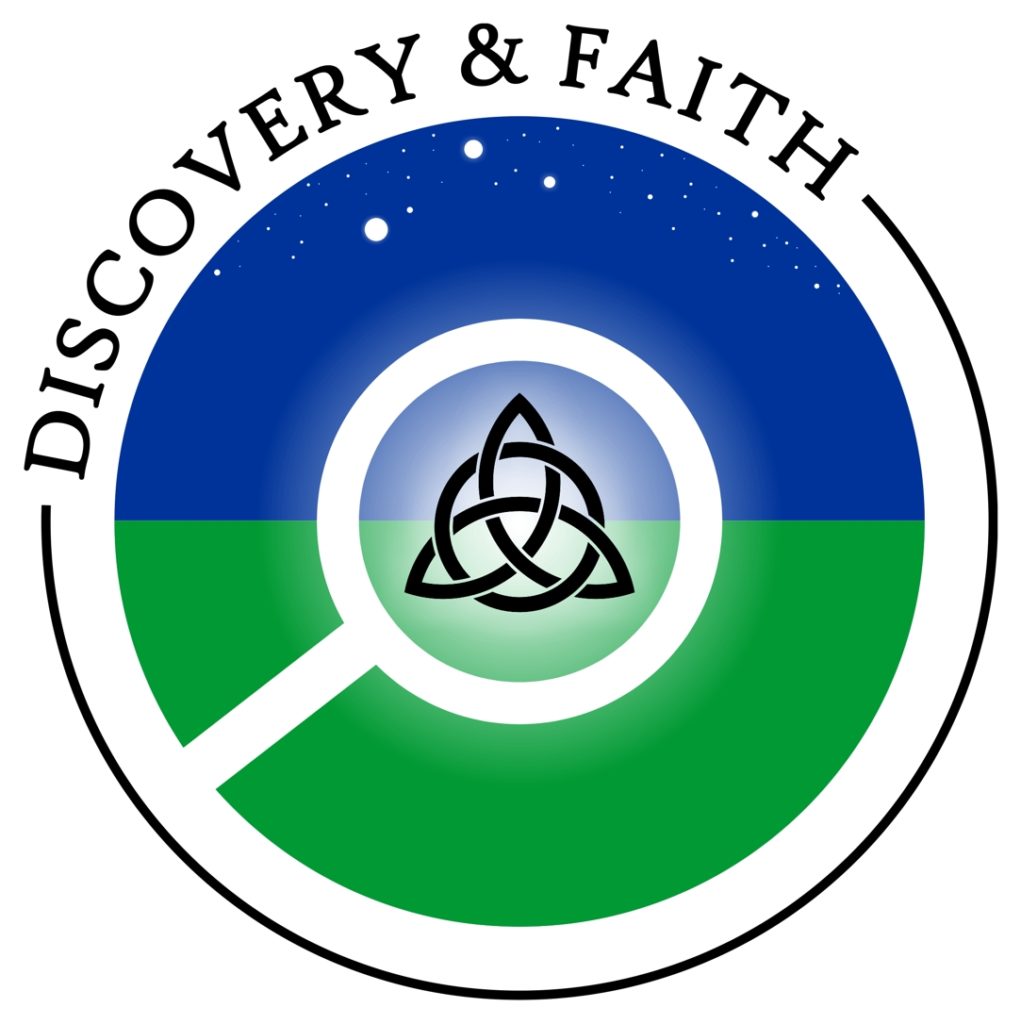
Discovery & Faith Seeks Churches to Pilot Its New Curricula in Fall 2019
Discovery & Faith is a ministry initiative launched by WesleyNexus in 2017 to provide resources to help the next generation experience harmony between science and Christian faith. It is seeking children’s ministry partners to pilot its new curricula.
“Exploring God’s World & Word: Genesis 1” is a six-week unit for children PreK through sixth grade that brings hands-on science alongside the first Creation story in the Bible for a side-by-side, science-and-faith learning experience.
“Foundations” is a supplemental confirmation curriculum that helps confirmands construct the intellectual foundations that help them more fully understand the practice of Christian faith, particularly as it relates to a world shaped by science and reason. It uses hands-on/minds-on activities to explore:
- Belief, knowing, and trust
- Belief in God
- How to read/interpret the Bible
- The relationship between science and faith
- God the Creator
- Genesis and evolution including perspectives on Adam
- Reason, history, and the story of Jesus and the resurrection
- What science tells us about the practice of faith has positive impacts on physical and mental health and well-being
If you are interested in participating in our pilot program, please contact Jennifer Secki Shields via connect@discoveryandfaith.org
**********************************
Second Annual “Cosmotheandric” Conference at the Omega Center, Dec 6-8, 2019

All of us in the WesleyNexus network should have a high interest in the upcoming conference sponsored by the Omega Center at Villanova University, December 6-8, on the theme “The Inside Story: Exploring Love at the Heart of the Universe.” The work of the Omega Center is guided by Sister Ilia Delio, a Franciscan Sister of Washington, DC and American theologian specializing in the area of science and religion, with interests in evolution, physics and neuroscience and the import of these for theology. The Omega Center envisions an emerging wholeness of God, world, and humanity through the transformative power of love in our scientific age. We find ourselves in a situation in which the divisive fragmentation of our age reflects a need for a new holistic synergy of science and spirituality to heal our divisions, deepen our compassion, and ignite the human spirit toward greater unity and flourishing. The Teilhardian concept of “Omega”—upon which the Center’s vision and work is based—is understood not as destination, but as deepening toward a more unified future. Omega is the revelation of God as the fullness of love, the dynamic center at the heart of all Creation.
Our affirmation is centered in an interconnected universe of deepening complexity, consciousness, and convergence. A new story of the whole transcends our differences and distances, encouraging a planetary faith of the Earth that welcomes all God’s peoples and all God’s life as one intricately connected spiritual community. It is a story where religion and science, faith and contemplation, and nature and technology converge toward a new creation. This conference will feature the leadership of Sr. Ilia Delio, Dr. Ursula King, Dr. John F. Haught, Sr. Kathleen Duffy and Dr. Cynthia Bourgeuult. The conference will be hosted in collaboration with the Institute for Religion and Science at Chestnut Hill College, Philadelphia, PA. Registration begins Friday, December 6th, at 5:00pm at the Commonwealth Chateau, and the closing session concludes on Sunday, December 8th, at 12:45pm. More information can be found at https://omegacenter.info/conference2019/
**********************************
Evolution Weekend 2020 (14-16 February 2020) is six months away – but approaching quickly!

This will be our 15th annual Evolution Weekend and, perhaps, our most important ever. Please join hundreds of your colleagues and work to reclaim the truth from those who believe opinion is more important. Please help us demonstrate that religion and science share many important facets and important conclusions.
You’ve participated in the past, and for that I am particularly grateful. I hope you will participate with your congregation again this coming February. Please sign up now!
Just hit reply and I’ll do the rest. I’ll add you to our growing list of colleagues, already over 70 strong representing 6 countries.
Thanks very much for considering participating again and for your continued support. Together we are making a difference.
Michael
Founder and Executive Director, The Clergy Letter Project
Michael Zimmerman
www.theclergyletterproject.org & mz@theclergyletterproject.org
**********************************
John Wesley, Early Evangelicalism, and Science, Tuesday, 25 February 2020, at 7:00 pm. Location: Parmer Hall, Messiah College, Mechanicsburg, PA.
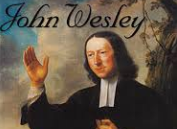
A free lecture sponsored by The Central Pennsylvania Forum for Religion and Science, the Messiah College Honors Program, College Ministries, and the Sider Institute for Anabaptist, Pietist, and Wesleyan Studies.
The rise of evangelicalism coincided historically with the reception of modern science in mainstream culture. The new science was generally embraced by evangelicals as a source of “wonder, love, and praise.” Indeed, one of the ways in which scientific literacy spread was through the many popular works disseminated by John Wesley on science, medicine, electricity. This lecture explores Wesley’s many-sided, thoughtful engagement with science and his exemplary concern to “look upon nothing separate from God.” Flyer link can be found here.
**********************************
Dear God, Are You There by George Yancy
“We are in a deep spiritual crisis that can’t be relieved by politics, or philosophy”.
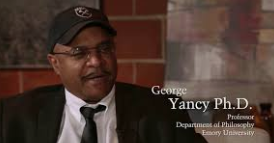
George Dewey Yancy (born June 3, 1961) is an American philosopher who has been a professor of philosophy at Emory University since fall 2015. He is also a distinguished Montgomery Fellow at Dartmouth College. He is also the editor for Lexington Books’ “Philosophy of Race” book series. He is known for his work in critical whiteness studies, critical philosophy of race, African American philosophy, and has written, edited, or co-edited more than 20 books. He has also authored numerous scholarly articles and chapters. Yancy has also authored numerous influential essays and conducted provocative interviews at The New York Times’ philosophy column “The Stone.”
**********************************
The Abuse of Religion to Foster Extremism Is a Universal Phenomenon by James Zogby
“When it masks a political agenda or when it justifies violence either by groups or state actors, it becomes a danger”.
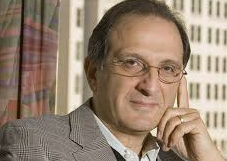
Dr. James J. Zogby is the author of Arab Voices (Palgrave Macmillan, October 2010) and the founder and president of the Arab American Institute (AAI), a Washington, D.C.-based organization which serves as the political and policy research arm of the Arab American community. Since 1985, Dr. Zogby and AAI have led Arab American efforts to secure political empowerment in the U.S. Through voter registration, education and mobilization, AAI has moved Arab Americans into the political mainstream. https://www.commondreams.org/views/2019/07/29/abuse-religion-foster-extremism-universal-phenomenon
**********************************
Blaming Trump is too easy: This is us. By Eddie Glaude
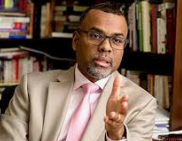
Eddie Glaude, the chair of the Department of African American Studies at Princeton University, speaks to American culture, racism in 2019 and how President Trump is the “manifestation of the ugliness that’s inside us.” https://www.msnbc.com/deadline-white-house/watch/blaming-trump-is-too-easy-this-is-us-65354309615
**********************************
About Mind-Body Problems by John Horgan
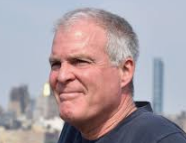
John Horgan is the author of four previous books: The End of Science, The Undiscovered Mind, Rational Mysticism and The End of War. He directs the Center for Science Writings at Stevens Institute of Technology and writes the Scientific American blog “Cross-check.” Photo by Skye Horgan. The link below points to the recent self-published book available online, all nine chapters.
“My book is about the central mystery of existence, the mind-body problem. In a narrow, technical sense, the mind-body problem asks how matter generates mind, but it’s really about what we are, can be and should be, individually and as a species. For thousands of years, prophets, poets and philosophers have told us stories about who we really are, but these stories are all over the place, they conflict with each other, and we have no way to decide which one is true, it just comes down to personal preference, or taste. I like Christianity, you’re into neo-Platonism. Now science is converging on a definitive, objectively true solution to the mind-body problem, backed up by hard empirical evidence, or so some science enthusiasts claim. I argue that they’re wrong. Science has told us a lot about our minds and bodies, but in the end it’s just giving us more stories that we choose for subjective reasons, because we find them consoling, or beautiful, or meaningful. Science will never discover an objectively true solution to the mind-body problem, which tells all of us once and for all who we are and should be, because that solution doesn’t exist”. https://mindbodyproblems.com/?fbclid=IwAR26R73d2bBa3IpPQSR8Y1UvhB_0CeK4qLrNmQdo0NOb2JTvJvSwtoPjtSk
**********************************
Report on the 2019 meeting of the American Scientific Affiliation.
Paul Arveson 7/24/2019
The theme of this year’s annual ASA meeting was “Exploring Creation.” The meeting took place July 20-22 at Wheaton College near Chicago. This was the 74th annual meeting of the ASA, which is the oldest science-Christianity organization in the US. The ASA consists of about 2000 members, roughly half academics and half industry professionals. The entire range of scientific fields is included, although there is a prevalence of physicists, biologists and chemists. However, the mix of science, philosophy and theology provides the meetings with a rich diversity of specialties and viewpoints that is probably unique.
I have been attending most of these annual meetings since the late 1970s. So it is always a pleasure to meet old friends and enjoy inspiring discussions. ASA members include many productive authors, and the book tables are always full of new titles. Some of the meetings are held in Canada, and there is a close partnership of ASA with the Canadian Scientific and Christian Affiliation.
The ASA also publishes a quarterly journal, “Perspectives on Science and Christian Faith,” and an online review called “God and Nature,” which is edited by Dr. Sy Garte, who is local and works at the NIH. The 2019 meeting included six dynamic keynote speakers on the general theme. In addition to the keynotes, there were about 75 thirty-minute presentations in four parallel tracks over 3 1/2 days.
The first keynote talk was by Deborah Haarsma, the Director of Biologos and an astronomer at Calvin College. She reviewed the recent discoveries of hundreds of planets around other stars, and speculated on the possibility of life on some of these. She quoted the famous Drake equation that combines the probabilities of several conditions to arrive at an estimate of the number of planets with intelligent life. We now recognize that it is quite normal for a star to form along with a system of planets, so there are probably hundreds of billions of planets in our galaxy.
The second keynote was by Dr. James Sherley, a graduate of Harvard and Johns Hopkins in stem cell therapeutic research. Dr. Sherley shared a narrative of his life starting from being a curious child in the rural South. He described various academic and professional challenges in his career. The next keynote was presented by Kenneth R. Miller, the lead witness in the Kitzmiller v. Dover trial on evolution and ID in 2005. Ken Miller gave an energetic defense of evolution as the foundation of all biological science. As a Christian, he defended the faith against the critiques of atheists, but he also defended evolution against the mistaken tactics of the Intelligent Design movement.
As a physicist, I always find it encouraging to discover Christians in the highest ranks of the profession. The keynote talk by Gerald Gabrielse was an example. He is past chair of the physics department at Harvard University. He now serves as Director of the Center for Fundamental Physics at Northwestern. He described an experiment in which the magnetic moment of the electron was measured to 13 decimal places. Dr. Gabrielse is new to ASA, and this keynote gave him the opportunity to share his views on the intersection of science and faith.
Gayle Woloschak is a Professor of biology at Northwestern U, and the editor-in-chief for the International Journal of Radiation Biology. She has a DMin from Pittsburgh Theological Seminary and is an Orthodox Christian. She discussed the question of the definition of life, arriving at a general view that “life (at least on planet Earth) can be defined in part by the fact that it evolves.” The last keynote was presented by Jennifer P. McNutt, a scholar in history and theology. She is currently co-editing the Oxford Handbook of the Bible and the Reformation. She highlighted the theological references to mirrors, as metaphors for the relation of Scripture and nature.
All of the keynote addresses and most of the breakout sessions were recorded and audio files will be posted on the ASA website soon. The website is https://www.asa3.org.
The 2020 annual meeting will be held in July at Point Loma Nazarene College in San Diego.
**************************************
The Center for Open and Relational Theology https://c4ort.com

What Is Open and Relational Theology?
God experiences time moment by moment (open)
“Open and Relational Theology” is an umbrella label under which a variety of theologies and believers reside. This variety shares at least two ideas in common:
God, us, and creation relate, so that everyone gives and receives (relational)
Most open and relational thinkers also affirm additional ideas, such as the idea love is our ultimate ethic, creatures are free at least to some extent, all creation matters, life has purpose, genuine transformation is possible, science points to important truths theology needs to incorporate, and more.
**********************************
Sermon on Community Building by Nancy Poole (St. Andrews Episcopal Church, 2019)
Nancy and John Poole were members of Damascus United Methodist Church in Maryland prior to their move to New Town, PA. At DUMC, they were leaders in outreach and social justice initiatives within the church and promoters of critical thinking and openness within the church and between faith communities. The following is a lay sermon given earlier in 2019 at St Andrews Episcopal Church as part of the community building program she is leading. The sermon can be found here.
